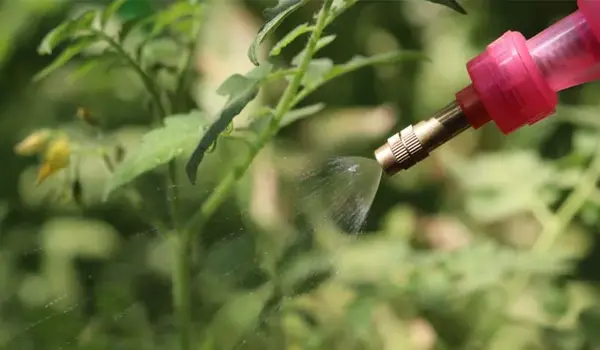In the realm of agriculture, pest management is crucial for maintaining healthy crops and ensuring optimal yields. Traditionally, chemical pesticides have been the go-to solution for controlling pests, but they come with a host of drawbacks, including environmental harm and health risks. In contrast, bio-pesticides offer a more sustainable and eco-friendly alternative. This blog explores the advantages of using bio-pesticides over traditional chemical pesticides and how they contribute to a healthier farming environment. Bio-pesticides are derived from natural sources such as plants, animals, or microorganisms. They work by targeting specific pests or pathogens, minimizing harm to non-target organisms. Unlike traditional chemical pesticides, which can cause environmental contamination and disrupt ecosystems, bio-pesticides are designed to be more selective and less harmful to the environment. For instance, products like Trichoderma Bio-Pesticides from Bulkagrochem harness the power of beneficial fungi to combat pests, promoting a balanced ecosystem in the soil. One of the significant concerns with chemical pesticides is the potential for harmful residues on crops, which can affect consumer health. Bio-pesticides, being derived from natural sources, generally decompose more quickly and leave fewer residues. This means that crops treated with bio-pesticides are less likely to have harmful chemical residues, leading to safer produce for consumers. By using bio-pesticides like Whitefly Controller Formulation and Bio Thrips-Mites Controller, farmers can reduce the risk of chemical contamination in their harvest. Pests can develop resistance to chemical pesticides over time, leading to the need for more potent or frequent applications. Bio-pesticides often work through different mechanisms, reducing the likelihood of resistance development. For example, Bio-Larvicide and Strong Larvicide Bioproduct from Bulkagrochem target specific life stages of pests, making it more difficult for pests to build up resistance. This helps in maintaining the effectiveness of pest control over the long term. Traditional chemical pesticides can negatively impact soil health by killing beneficial microorganisms and disrupting soil structure. Bio-pesticides, on the other hand, are generally more compatible with soil ecosystems. Products like Trichoderma Bio-Pesticides Powder Formulation not only control pests but also enhance soil health by promoting beneficial microbial activity. This contributes to better soil fertility and overall plant health. Bio-pesticides are designed to target specific pests while leaving beneficial insects, such as pollinators and natural predators, unharmed. This is crucial for maintaining biodiversity and ensuring that beneficial insects can continue to perform their essential roles in the ecosystem. For example, using Ema 5% Water Dissoluble Granule can help manage pest populations without adversely affecting the beneficial insects that contribute to crop pollination and natural pest control. Bio-pesticides align with sustainable farming practices by reducing the reliance on synthetic chemicals and promoting environmental stewardship. They support integrated pest management (IPM) strategies, which combine biological, cultural, and mechanical control methods. This holistic approach helps in managing pests effectively while minimizing environmental impact. Bulkagrochem’s range of bio-pesticides, including Organic Fungicide, plays a role in sustainable pest management by offering eco-friendly solutions for crop protection. Chemical pesticides can pose health risks to farmers, farm workers, and consumers. Exposure to these chemicals has been linked to various health issues, including respiratory problems and long-term diseases. Bio-pesticides, being derived from natural sources, typically have a lower risk of causing health problems. By opting for bio-pesticides, farmers can create a safer working environment and produce healthier food. Bulkagrochem’s Neem Oil EC Formulation is an example of a bio-pesticide that provides effective pest control while minimizing health risks. While bio-pesticides might have a higher initial cost compared to some chemical pesticides, their long-term benefits can make them cost-effective. They can reduce the need for frequent applications and lower the risk of resistance development, leading to more stable pest management costs. Additionally, by improving soil health and crop quality, bio-pesticides can contribute to better yields and potentially higher profits. Bulkagrochem’s diverse range of bio-pesticides offers various options to meet different pest management needs while supporting cost-effective farming practices. Bio-pesticides offer numerous advantages over traditional chemical pesticides, including environmental benefits, reduced chemical residues, lower risk of resistance, improved soil health, and safer outcomes for beneficial insects and human health. By integrating bio-pesticides into pest management strategies, farmers can contribute to a more sustainable and resilient agricultural system. Bulkagrochem’s range of bio-pesticides, such as the Trichoderma Bio-Pesticides Powder Formulation and Whitefly Controller Formulation, exemplifies the potential of bio-pesticides to provide effective, eco-friendly solutions for pest control. Embracing bio-pesticides not only supports healthier farming practices but also aligns with the growing demand for sustainable agriculture. As the agricultural industry continues to evolve, bio-pesticides represent a promising path towards achieving more environmentally responsible and health-conscious farming practices.1. Eco-Friendly Approach
2. Reduced Chemical Residue
3. Lower Risk of Resistance
4. Improved Soil Health
5. Safer for Beneficial Insects
6. Sustainable Pest Management
7. Reduced Impact on Human Health
8. Cost-Effectiveness
Conclusion
Bulkagrochem
Submit your contact number & get exciting offer
Bulkagrochem.com
Bulk Purchase & Get Bulk Discount
Share your number to receive customized bulk pricing, availability updates, and exclusive offers directly via WhatsApp.

Recommended Products



